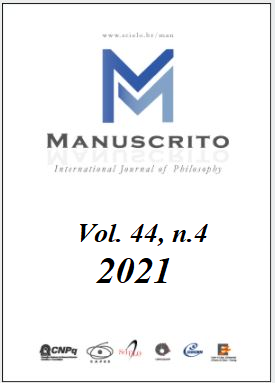Resumen
In this paper, we discuss a family of arguments that show the inconsistency of the concept of omniscience, which is one of the central attributes of the theistic God. We introduce three member of this family: Grim’s Divine Liar Paradox, Milne’s Paradox and our own Divine Curry. They can be seen as theological counterparts of well-known semantic paradoxes. We argue that the very simple dialetheist response to these paradoxes doesn’t work well and then introduce our own response based on a framework that we call Logic of Impossible Truths (LIT). LIT is a non-dialetheist paraconsistent logic designed to represent divine ominiscience and to preserve the transparency of the truth predicate and which semantics rests on the concept of situation. Since some rules of classical logic are not valid in LIT, we are in a position to block the derivation of the paradoxes. Thus, LIT offers a way out of the dilemma of accepting that there are true contradictions (dialetheism) or giving up the idea that there is an all-powerful, omniscient and perfectly good being (atheism).
Citas
BARWISE, J. and ETCHEMENDY, J. The Liar: An essay on truth and circularity. OUP. New York. 1987.
BARWISE, J. and PERRY, J. Situations and Attitudes. CSLI Publications 1999.
BEALL, JC. Spandrels of Truth. Oxfod. 2009.
BERTO, F., FRENCH, R., PRIEST, G., and RIPLEY, D. Williamson on Counterpossibles. Journal of Philosophical Logic, 47, pp 693-713. 2018. DOI: 10.1007/s11245-016-9424-x
CRAIG, E. Knowledge and the State of Nature. Oxford: Clarendon Press, 1990.
COTNOIR, A.J. Theism and Dialetheism. Australasian Journal of Philosophy, 2017. DOI: 10.1080/00048402.2017.1384846
GEACH, P. On Insolubilia. Analysis, Volume 15, Issue 3, January 1955. DOI: 10.1093/analys/15.3.71
KRIPKE, S. Outline of a Theory of Truth. In Journal of Philosophy, volume 72, pp. 690-716. 1975. DOI: 10.2307/2024634·GRIM P. The Incomplete Universe. Cambridge: MIT Press, 1991.
LEWIS, D. Counterfactuals. Oxford 1973.
MARES, E. Relevant Logic: A Philosophical Interpretation. Cambridge, 2004.
NOLAN, D. Conditionals and Curry. Philosophical Studies, vol. 173(10). 2016. DOI: 10.1007/s11098-016-0666-7.
PRIEST, G. In Contradiction. OUP. Oxford. 2006.
PRIEST, G. An Introduction to Non-Classical Logic: From if to is. Cambridge University Press. New York. 2008.
RESTALL, G. Negation in relevant logics (How I stopped worrying and learned to love the Routley star). In D. M. Gabbay and H. Wansing, editors, What is Negation? , Applied Logic Series. Springer, 1999.
STALNAKER, R. A theory of conditionals. Studies in logical theory. American Philosophical Monograph Series, vol. 2, pp.98-112. 1968.

Esta obra está bajo una licencia internacional Creative Commons Atribución 4.0.
Derechos de autor 2021 Manuscrito: Revista Internacional de Filosofia


